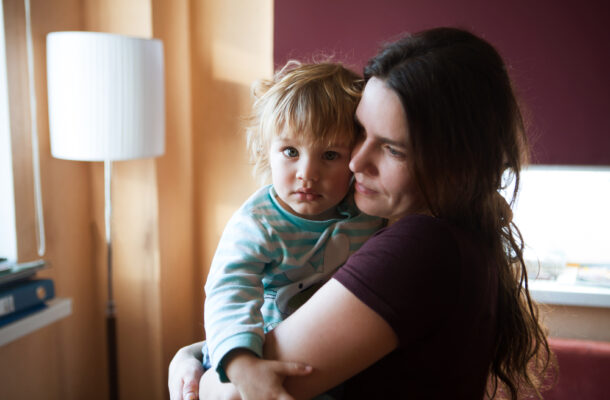Tackling childhood adversity

More than half of children in Australia will face adversity by the age of 11 and are up to 10 times more likely to have long term health problems than their peers, according to researchers.
To help tackle the issue, an adversity symposium will be hosted by Murdoch Children’s Research Institute’s Centre for Research Excellence in Childhood Adversity and Mental Health and Beyond Blue in Melbourne from June 15-16, which will bring together leaders in the health, education, social care and justice system, along with lived experience advisors, focusing on children from birth to 12 years.
Childhood adversity spans maltreatment (physical, emotional or sexual abuse), household dysfunction (parental mental illness, family substance abuse and domestic violence) and societal issues (racism and discrimination).
Murdoch Children’s Professor Harriet Hiscock, who will co-convene the event alongside Professor Anthony Jorm, said with cost-of-living pressures increasing, more families were struggling to make ends meet. Exposure to childhood adversity had harmful effects on mental and physical health throughout a person’s life, she said.
To grasp the current situation in Australia, researchers have spoken with families at child and family health and social care hubs to gauge their experiences and life challenges.
“Addressing childhood adversity should be a major focus as families, more than ever, are facing tough financial decisions,” she said.
“The accumulation of multiple adversities in childhood can be particularly detrimental and crippling and has a stronger effect on health outcomes such as anxiety, depression, obesity, cancer and heart disease than any one adversity experienced in isolation.
“We have found that children from low socio-economic backgrounds and minority ethnic and linguistic groups are also more likely to be affected by adversity. These families face a range of sources of disadvantage, including structural barriers to accessing education, health services and meaningful employment, which shape their disproportionate exposure to adversity.”
Leanne Constable said she had faced adversity most of her life, having grown up in a severely dysfunctional family.
“Being raised in a challenging environment has impacted me throughout life, but especially when I had my own children,” she said.
“I didn’t know what normal was in a family and I had to rethink everything. With the additional stress of having children, I really struggled to cope and regulate my emotions. It impacted everything from not just how to raise two children but the ability to work, our housing and finances.
“I needed a lot of support and I found it difficult to find the right help. There must be a better way than having to retell your story over and over as you get passed through a fragmented system. The effort it takes to find help can be re-traumatising and extremely frustrating so often you just give up.”
Ms Constable said wrap around support, which sees people receive integrated and coordinated services working together to meet their needs, would have been extremely helpful.
“It took a lot of hard work for me to turn everything around from receiving mental health and social services support and undertaking parenting courses,” she said. I’m finally at point where my functioning has significantly improved and my capacity to parent is better.
“But it does fill me with dread to see how much families are struggling at the moment with the increased cost of living and it makes you realise how close you can be to homelessness. People can be put in an impossible situation through no fault of their own. The support response to this needs to be cross sector to enable a coherent plan for families.”
Ms Constable said the upcoming symposium held a lot of promise to help improve the support system for those who were “barely able to make it through the day.”
Professor Hiscock said addressing adversity early was a significant opportunity to promote health over the lifespan and especially reduce health inequalities experienced by marginalised groups of children.
“Given how common childhood adversity is in Australia and its effects on child and subsequently adult mental health and wellbeing, preventing or reducing adversity in children should be key priorities. Doing so could avert a substantial proportion of the population being burdened by mental illness.
“Preventing or mitigating adversity requires those with lived experience, service providers, policy makers and researchers to come together and collectively decide on next steps. It requires people from diverse sectors including health, education, social care, and justice – given adversity and its impacts spans all these sectors.”
Beyond Blue CEO Georgie Harman said it was vital to find ways of preventing mental health conditions, especially when half emerge by the age of 14.
“Providing the right mental health support when it’s needed is important but understanding the causal factors and how to lessen the impact on people when they are young, could help reduce the high rates of anxiety and depression we see today,” Ms Harman said.
“We hope the symposium will allow us to not only better understand what many children and families are experiencing, but also identify what policy makers and service providers can do earlier, and differently, to prevent and reduce the impact of childhood adversity and improve lives in the long run.”
Open Forum is a policy discussion website produced by Global Access Partners – Australia’s Institute for Active Policy. We welcome contributions and invite you to submit a blog to the editor and follow us on Twitter, Facebook, Linkedin and Mastadon.













